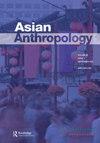从悲剧到胜利:日本Tarō的海啸缓解和防灾旅游
Q2 Social Sciences
引用次数: 3
摘要
2011年3月11日,岩手县东北部海岸的许多小渔业社区被日本灾难性的海啸摧毁,田井是其中之一。从历史上看,在包括日本在内的世界大部分地区,灾后观光经常被描绘成一种强调死亡、损失和破坏的“黑暗旅游”。然而,在田井,2011年后以社区为主导的旅游业已成为一种积极、强化、建立身份的经济发展战略的催化剂,这种战略注入了对未来的希望,在当地被称为Bōsai(防灾)旅游。利用民族志方法,本文认为,与许多灾后旅游景点不同,Bōsai田井的旅游建立在基于地点的实践和传统社区知识的基础上,为游客提供积极,令人满意的旅游体验,并为当地居民提供前所未有的有形社会,经济和政治目标,以便他们在拥抱未来时努力实现,旨在将当地的悲剧转化为当地的胜利。本文章由计算机程序翻译,如有差异,请以英文原文为准。
From tragedy to triumph: tsunami mitigation and Bōsai (disaster prevention) tourism in Tarō, Japan
Abstract Tarō is one of many small fishing communities on the northeastern coast of Iwate Prefecture which was decimated by Japan’s catastrophic tsunami on 11 March 2011. Historically, in most parts of the world, including Japan, post-disaster sightseeing has often been portrayed as a form of Dark Tourism emphasizing death, loss and devastation. However, in Tarō, community-led tourism post-2011 has become the catalyst for a positive, fortifying, identity-building economic development strategy infused by hope for the future referred to locally as Bōsai (Disaster Prevention) Tourism. Using an ethnographic approach, this paper argues that, unlike many post-disaster tourism sites, Bōsai Tourism in Tarō builds around place-based practices and traditional community knowledge to provide a positive, satisfying touristic experience for visitors, and gives local residents unprecedented yet tangible social, economic, and political goals to strive for as they embrace the future, designed to transform local tragedy into a local triumph.
求助全文
通过发布文献求助,成功后即可免费获取论文全文。
去求助
来源期刊

Asian anthropology
Social Sciences-Anthropology
CiteScore
1.60
自引率
0.00%
发文量
25
期刊介绍:
Asian Anthropology seeks to bring interesting and exciting new anthropological research on Asia to a global audience. Until recently, anthropologists writing on a range of Asian topics in English but seeking a global audience have had to depend largely on Western-based journals to publish their works. Given the increasing number of indigenous anthropologists and anthropologists based in Asia, as well as the increasing interest in Asia among anthropologists everywhere, it is important to have an anthropology journal that is refereed on a global basis but that is editorially Asian-based. Asian Anthropology is editorially based in Hong Kong, Taiwan, and Japan, but welcomes contributions from anthropologists and anthropology-related scholars throughout the world with an interest in Asia, especially East Asia as well as Southeast and South Asia. While the language of the journal is English, we also seek original works translated into English, which will facilitate greater participation and scholarly exchange. The journal will provide a forum for anthropologists working on Asia, in the broadest sense of the term "Asia". We seek your general support through submissions, subscriptions, and comments.
 求助内容:
求助内容: 应助结果提醒方式:
应助结果提醒方式:


